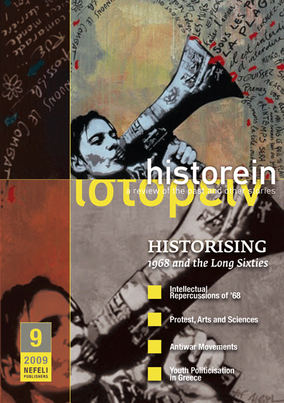Millennien und andere Jubeljahre : Warum feiern wir Geschichte?
Part of : Historein : a review of the past and other stories ; Vol.1, 1999, pages 125-146
Issue:
Pages:
125-146
Parallel Title:
Jubilees and Other Anniversaries : Why do we celebrate history?
Section Title:
Articles
Abstract:
Anniversaries do not only concern the past. They also concern the present. It is however difficult to relate the celebration of history with other forms of study of the past. Nobody really objects to the celebration of historical events. But do we really need a history of celebrations? If we agree that there have to be celebrations of the past, then we are obliged to undertake the responsility to reflect seriously on the ways in which the history of celebrating influences political and social consciousness. A great part of this responsibility lies with historians. The history of anniversaries is different from critical historical disciplines in terms of its aims and methods. The former however must constitute an object of study for the latter. Seen in a progressive way the origins of historical anniversaries are traced in religion. The celebration of history in particular "sacred times" does not constitute a widespread religious practice. The celebration of history is however related to the particular importance of memory within a religion; it is also related to the ways in which religious practices establish a special culture of celebrating. In Christianity the memory of different events of salvation has acquired a particular importance. The emphasis on events of salvation is shared by Christianity and Judaism. There is a great difference between religious celebrations and political anniversaries. The celebration of victories in war on the same dates as the celebration of saints in the Byzantine period constituted a link between these two different forms of celebration. In the West, similar forms of celebration were adopted in Venice. The origins of historical anniversaries in their contemporary form can be traced to the period of Reformation. The celebration of historical events was grounded on the new historical consciousness of Protestantism and the new fascination with the concept of the millenium in that period. The fact that religious celebrations and other anniversaries were dependent on the decision of local hegemons contributed to the gradual secularization and politicization the culture of celebrating history. Public celebrations cultivate static forms of historical consciousness. History, however, is used in many different ways in order to legitimize political ideologies in the present. During the 19th and 20th centuries, historical celebrations were used in order to produce negative images of national enemies. From this perspective the popularity of historical celebrations forces us to consider their possible impact on society. The concepts of the century and the millenium are founded on the notion of clear points of change in history. In the context of secular thought the notion of canonical transition from the 'old' to the 'new' is not only illogical, it is also dangerous since it encourages passivity. In our period of transition it is necessary to think about change through an approach to history that would differentiate itself from practices of exorcism of conceptual ghosts. This article was based on a speech that was deliverd on the 26th of October 1996 at the City Hall of Vienna on the occasion of the the Austrian National Day. It will be soon published in the Wiener Vorlesungen series.
Subject:
Subject (LC):




